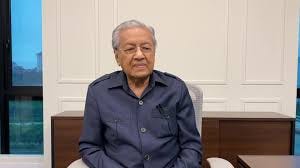If the MACC is corrupt, then how can Malaysia ever eliminate corruption?
Eradication of corruption within the MACC must be the first priority
The Malaysian Anti-Corruption Commission (MACC) is Malaysia’s corruption watchdog, investigator, and prosecutor, after it has received permission from the attorney general. How effective can the MACC be, if it is corrupt itself?
My personal experiences
My first experience of the MACC was back in 2005, when I made allegations of corruption against the State Secretary at the time. After some months, the officer I made the complaint to, called me into the Perlis MACC office, where the then director of the office came in to the office and meet with me. The director of the Perlis MACC office told me there was no case against the Perlis state secretary, and that I should leave the state.
After the state director left the room, the local investigating office said there was a case, but that person had connections to the very top of the MACC. The complaint was pulled. I also found out that a copy of my complaint was given directly to the then state secretary, which made my life in Perlis hell.
Cases of corruption within the MACC
As we have seen over recent days, the MACC has arrested one of its own officers for alleged soliciting, and taking bribes amounting to RM 400,000 to avoid investigation involving the Jana Wibawa program. The Mohd Hussein Mohd Nasir alias, ‘Datuk Roy’ arrest hints a widespread and systematic racket of soliciting funds for not investing cases across government ministries and agencies.
This puts into the question the policy of the MACC to place its officers within ministries and agencies. How objective can they be working alongside the people they are meant to be watching for corruption.
An MACC officer told the writer that tipoffs, rather than observations in ministries, are the prime source of leads in any corruption investigations. While many come in through letter, and email, many whistle-blowers fear walking directly into MACC offices in case they are seen.
Not independent
The MACC grew out of the Anti-Corruption Agency (ACA), then under the Prime Ministers’ Department, and which was corrupt itself. Many investigations were stifled when the then Director General and/or officers within his office pulled case files out of the system to protect friends before they went to the Attorney General for a decision on prosecution. Sometimes complaint files were even leaked to the subjects, who took retribution against the complainants. In 2009, a much larger unit was born independent of the Prime Ministers’ Department MACC, with five separate committees overseeing and scrutinizing its activities.
However, the MACC’s reputation, never very savory, was tarnished with the death of a witness in an alleged corruption case involving the then-opposition Pakatan state councilor Ean Yong Hian Wah in Selangor. Teoh Beng Hock was interrogated for more than nine hours straight in the MACC Selangor office and was found dead on the 5th floor of Plaza Masalam after falling from the 15th floor which housed the MACC office in the adjacent building. A verdict of suicide has long been questioned by reform organizations.
Under the second time Mahathir Mohamed was prime minister, he appointed human rights lawyer and former PKR member, Latheefa Koya. There were concerns of lack of independence.
A number of cases were put on the back burner, including members of the Barisan who crossed over to Pakatan in Sabah who have had their investigations for corruption put on hold. There have also been enduring complaints about the children of Prime Minister Mahathir Mohamad, who critics claim was built on patronage. His son Mokhzani, 58, for instance, is rated Malaysia’s 16th richest executive by Forbes magazine with a fortune estimated at more than US$600 million. Mirzan, 60, holds shares both in Petron Malaysia (PEM) and its parent concern, Petron Corporation. He is also a stakeholder in San Miguel Corporation, a Philippines based food and beverage giant that owns 68.3 percent of Petron Corporation. Mahathir has stoutly insisted the children have enriched themselves through their own efforts. Former Penang Chief Minister Lim Guan Eng was only investigated for bribery in the Penang undersea tunnel case after the Pakatan Harapan was ousted and replaced by Perikatan Nasional in 2020.
However, with reports Tun’s wealth of RM 188 billion, there are rumors of a move against him very soon
Under the Anwar administration, there are a number of MACC cases that are now in silence. These include the Zeti Akhtar Aziz case, the Judge Nazlan case, the LCS project case, and the Invoke investigations. There are also questions about why didn’t the directors of Bukhary Equity Sdn Bhd weren’t also charged along-side Muhyiddin Yassin?
There are strong criticisms coming from one side of politics that the MACC is selective in its investigations, arrests, and prosecutions.
Selective investigation and prosecution leads to a loss of integrity.
The weak link in the agency’s independence is that all prosecutions must be sanctioned by the public prosecutor, the attorney general. The International Commission Against Corruption in Hong Kong and Indonesia’s Corruption Eradication Commission, for instance, are not answerable to the standard court systems. They operate independently.
In late 2021, a journalist published articles based on publicly-available documents about Azam’s ownership of millions of shares in two publicly-listed companies while he was the head of MACC’s investigations department. Unless the MACC is drastically reformed and undergoes an immediate overhaul in leadership, the commission’s integrity will continually be under question.
Malaysia has been continually dropping in the Transparency International Corruption Perception Index (CPI). In 2020, Malaysia ranked 52, with a score of 51 (0 = most corrupt), and in 2022, ranked 61, with a score of 52.
Subscribe Below:





